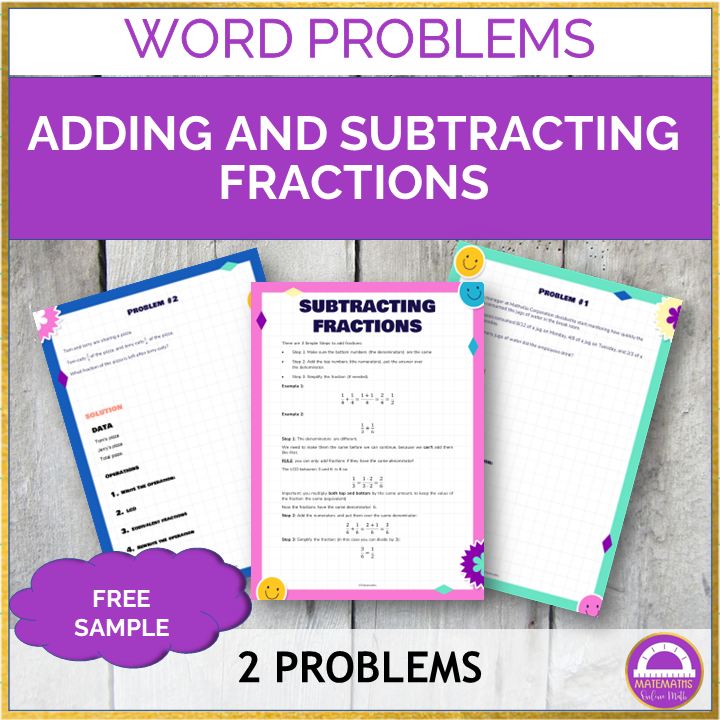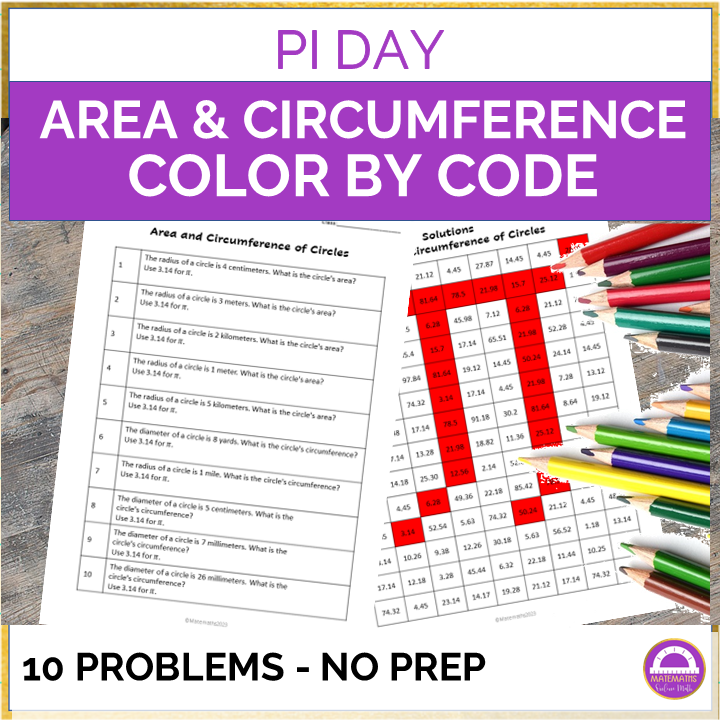
FREE Adding and Subtracting Fractions Word Problems
Say goodbye to time-consuming word problem creation. With these pre-made fraction word problems, you can focus on teaching, knowing that everything is meticulously planned to enhance your students' learning experience.
Unlocking the Power of Fractions Word Problems: Fostering Critical Thinking in the 5th Grade Classroom.
In the world of mathematics education, fractions word problems are often regarded as indispensable tools for developing critical thinking skills. While their relevance is undeniable, it’s worth delving deeper into why word problems occupy such a prominent place in the teaching of mathematics, especially in the context of 6th-grade education.
The Essence of Fractions Word Problems
Fractions word problems, at their core, represent a bridge between abstract mathematical concepts and real-world applications. They encapsulate mathematical principles within contextual narratives, inviting students to decipher, analyze, and ultimately solve problems grounded in everyday scenarios. By presenting mathematics as a problem-solving tool rather than a collection of abstract formulas, word problems engage students on a practical level.
Cultivating Critical Thinking Skills
One of the primary reasons word problems are highly valued in mathematics education is their ability to nurture critical thinking. These problems require more than mere computational prowess; they demand analytical thinking, logical reasoning, and creative problem-solving. In essence, word problems compel students to think beyond the surface and explore the depths of mathematics.
Consider a word problem that involves determining the most cost-effective method for purchasing groceries. This scenario necessitates not only arithmetic skills but also the ability to analyze different variables, such as prices, quantities, and discounts. Students must employ critical thinking to arrive at an optimal solution that aligns with their budget.
Application in Real-Life Scenarios
Word problems make mathematics relevant by demonstrating its practicality in everyday life. They serve as a reminder that mathematics is not an isolated subject confined to textbooks and classrooms but an invaluable tool for navigating the complexities of the real world.
For example, when presented with a word problem involving calculating travel time based on distance and speed, students are not merely solving an equation. They are simulating a real-life decision-making process, much like what they might encounter when planning a road trip in the future. This connection to real-life scenarios enhances the appeal of mathematics and underscores its importance.
Enhancing Problem-Solving Abilities
Word problems encourage students to approach challenges systematically. Rather than jumping straight into calculations, students must first analyze the problem, identify relevant information, and formulate a plan of action. This systematic approach mirrors the problem-solving methods used in various professions and academic disciplines.
For instance, in a word problem involving designing a garden, students must consider factors such as available space, plant selection, and budget constraints. This holistic approach to problem-solving not only fosters critical thinking but also cultivates skills that are transferable to a wide range of fields and endeavors.
Preparing for Future Success
Beyond the classroom, the ability to think critically and solve complex problems is highly valued in the modern workforce. Employers seek individuals who can analyze situations, make informed decisions, and adapt to changing circumstances. Word problems, with their emphasis on critical thinking, play a pivotal role in preparing students for future success.
As students progress through their academic journey and eventually enter the workforce, they will encounter challenges that demand more than rote memorization of facts and formulas. They will face intricate problems that require innovative solutions. Word problems serve as a training ground for such scenarios, equipping students with the skills and mindset necessary to thrive in an ever-evolving world.
Word problems are not mere mathematical exercises; they are vehicles for developing critical thinking skills that extend far beyond the confines of the classroom. They engage students in practical, real-world problem-solving and prepare them for future challenges. In the 6th-grade classroom, word problems are not just a means of mastering math; they are a gateway to fostering the critical thinking abilities that will serve students well throughout their educational and professional journeys. Embrace the power of word problems, and you’ll discover that mathematics is not only a subject but a dynamic tool for navigating the complexities of life.



